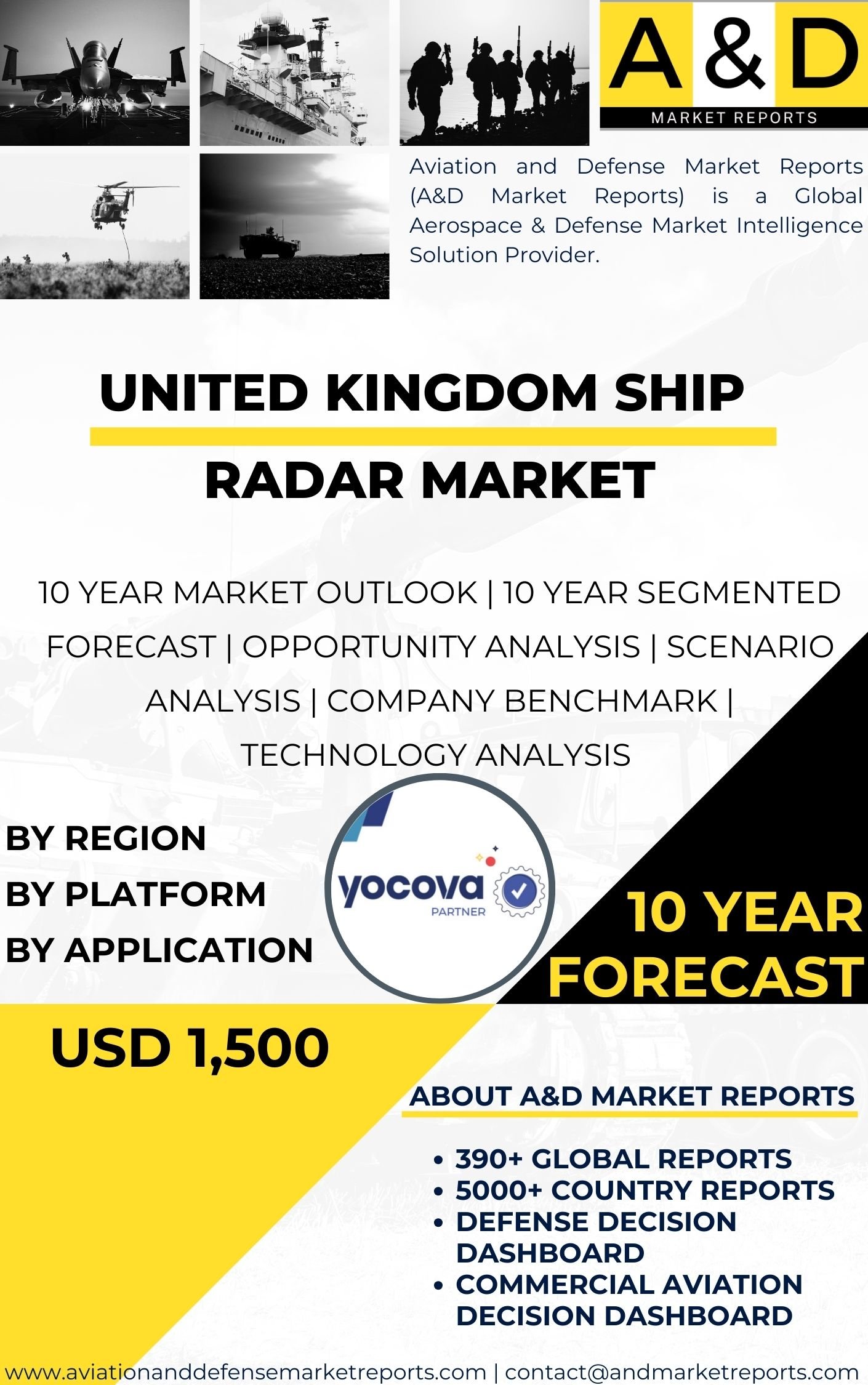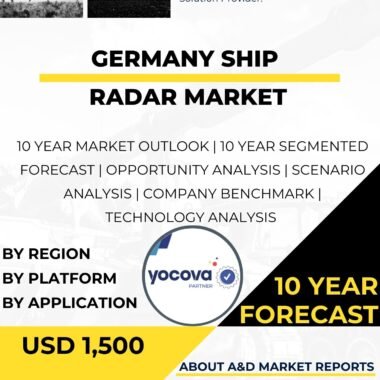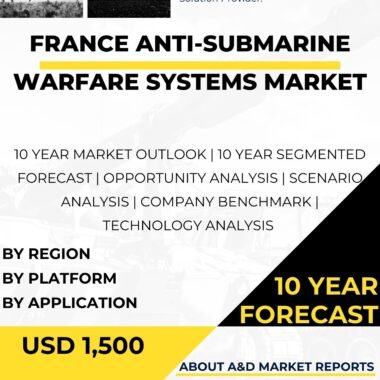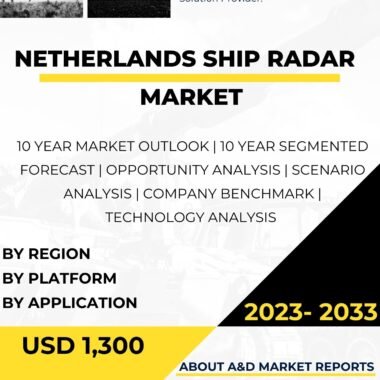Description
Overview of the UK Ship Radar Market
The United Kingdom Ship Radar plays an important role in improving maritime safety and surveillance. Ship radar systems help vessels detect other ships, obstacles, and hazards. They provide clear situational awareness for safe navigation. These systems also support search and rescue tasks and protect UK waters. Their reliability makes them essential for maritime operations.
Development and Procurement in the UK Ship Radar Market
A major priority in the UK ship radar market is the development of advanced radar systems. The UK government, maritime agencies, and private ship owners invest in modern radar technology. These systems must support merchant vessels, naval ships, and coast guard fleets. Investment ensures safe and efficient operations on busy sea routes. It also strengthens national maritime readiness.
Applications and Operational Use in the UK Ship Radar Market
The UK ship radar market supports a wide range of maritime activities essential to safe and efficient operations. Radar systems enable accurate navigation, collision avoidance, and reliable target detection at sea. They also assist in monitoring maritime traffic and identifying potential threats. Operators rely on radar during both routine voyages and emergency situations. This makes ship radar a core component of everyday maritime operations in UK waters.
Advanced Technologies in the UK Ship Radar Market
Modern solutions in the UK ship radar market incorporate advanced signal processing and enhanced target-tracking capabilities. Technologies such as ARPA, integrated weather radar, and high-clarity digital displays significantly improve situational awareness. These systems help crews detect hazards earlier and navigate with greater precision. Continuous technological upgrades extend radar range and accuracy. As a result, vessels remain well prepared for demanding and complex maritime environments.
Enhancing Maritime Safety
Ship radar systems play a vital role in improving maritime safety across the UK. Early detection of vessels, obstacles, and environmental hazards enables timely evasive action. This capability significantly reduces the risk of collisions and groundings. Enhanced radar performance supports safe navigation in poor weather and low-visibility conditions. Overall, radar technology raises safety standards throughout UK maritime operations.
Support for Maritime Security and Law Enforcement
The UK ship radar market also contributes directly to national maritime security. Naval and coast guard vessels rely on radar to monitor suspicious movements and track unauthorized ships. Radar systems support law enforcement activities, border protection, and surveillance missions. They enable faster response to security incidents and emergencies. This capability is essential for safeguarding UK territorial waters.
Innovation and Continuous Improvements
Innovation remains a key driver within the UK ship radar sector. Manufacturers continually develop new features to enhance detection accuracy, speed, and system reliability. Research efforts focus on improving radar performance in congested and complex maritime environments. These advancements strengthen monitoring and response capabilities. Ongoing innovation ensures the UK remains at the forefront of maritime radar technology.
Training and Expertise in Radar Operations
Effective use of ship radar depends heavily on skilled operators within the UK ship radar market. Crews require thorough training in radar interpretation, collision-avoidance rules, and emergency response procedures. Expertise in target identification and navigation is essential for safe operations. Well-trained personnel maximize the effectiveness of advanced radar systems. This human factor adds an important layer of operational safety.
Strategic Planning and Deployment
Strategic planning is essential for radar deployment across the UK ship radar market. Authorities assess vessel roles, mission profiles, and operational environments before selecting radar systems. Equipment choices are guided by safety, security, and regulatory requirements. Proper planning ensures each vessel is equipped with suitable radar capability. This approach supports both national maritime strategy and daily operational needs.
Challenges in the UK Ship Radar Market
The market faces several challenges. Continuous research and development require large investments. Upgrading fleets with modern radar systems can be costly. The UK must balance advanced technology with affordability. Evolving maritime threats demand constant innovation. Meeting these demands is essential for long-term performance.
Cooperation and Partnerships in the UK Ship Radar Market
The UK ship radar market benefits strongly from cooperation with partner nations and maritime organizations. Joint development programs support radar research, testing, and validation in real operating conditions. Shared maritime operations help monitor wider sea areas more efficiently. In addition, collaboration reduces research and development costs. These partnerships significantly strengthen the UK’s overall maritime capability.
Conclusion: Outlook of the UK Ship Radar Market
The UK ship radar market remains essential for maritime safety, surveillance, and national security. Radar systems enhance navigation accuracy, protect vessels, and support law enforcement operations. Continuous technological development and skilled operator training maximize system effectiveness. Ongoing investment and innovation will further strengthen radar capabilities. As a result, ship radar will continue to play a central role in reinforcing the UK’s maritime strength.
Table of content
Table Of Contents
1 Market Introduction
1.1 Market Introduction
1.2 Market Definition
1.3 Market Segmentation
1.4 10 Year Market Outlook
2 Market Technologies
3 Global Market Forecast
3.1 Global Market Forecast
3.2 By Platform
3.3 By Application
4 Europe Market Trends & Forecast
4.1 Drivers, Restraints And Challenges
4.2 PEST
4.3 Market Forecast
4.3.1 Market Forecast By Platform
4.3.2 Market Forecast By Application
4.4 Scenario Analysis
4.5 Key Companies& Profiling
5 United Kingdom Analysis
5.1 Current Levels Of Technology Maturation In This Market
5.2 Market Forecast
5.2.1 Market Forecast By Platform
5.2.2 Market Forecast By Application
5.3 Scenario Analysis
5.4 Country Defense Budget (Historical and 10- year forecast)
5.5 Defense Budget Category Spending- 10- year forecast
5.6 Procurement Analysis
5.7 EXIM Data
5.8 Patents
6 Opportunity Matrix
6.1 By Platform
6.2 By Application
7 Scenario Analysis
7.1 Scenario 1
7.1.1 By Platform (Scenario-1)
7.1.2 By Application(Scenario-1)
7.2 Scenario 2
7.2.1 By Platform (Scenario-2)
7.2.2 By Application(Scenario-2)
8 Company Benchmark
9 Strategic Conclusions
10 About Aviation And Defense Market Reports
Segments
By Platform
By Application
List of Tables
Table1: Global Market Forecast, United Kingdom Ship Radar Market
Table2: Europe Market Forecast, United Kingdom Ship Radar Market
Table3: Europe Market Forecast, By Platform
Table4: Europe Market Forecast, By Application
Table5: Europe, Scenario Analysis
Table6: United Kingdom Market Forecast, United Kingdom Ship Radar Market
Table7: United Kingdom Market Forecast, By Platform
Table8: United Kingdom Market Forecast, By Application
Table9: United Kingdom, Scenario Analysis
Table 10: United Kingdom Defense Budget 10 Year Forecast
Table 11: United Kingdom, Defense Budget Category Spending- 10- year forecast
Table 12: United Kingdom, Procurement Analysis
Table 13: United Kingdom, EXIM Data Analysis
Table 14: United Kingdom, Opportunity Analysis, By Platform
Table 15: United Kingdom, Opportunity Analysis, By Application
Table 16: United Kingdom, Scenario Analysis, By Platform
Table 17: United Kingdom, Scenario Analysis, By Application




